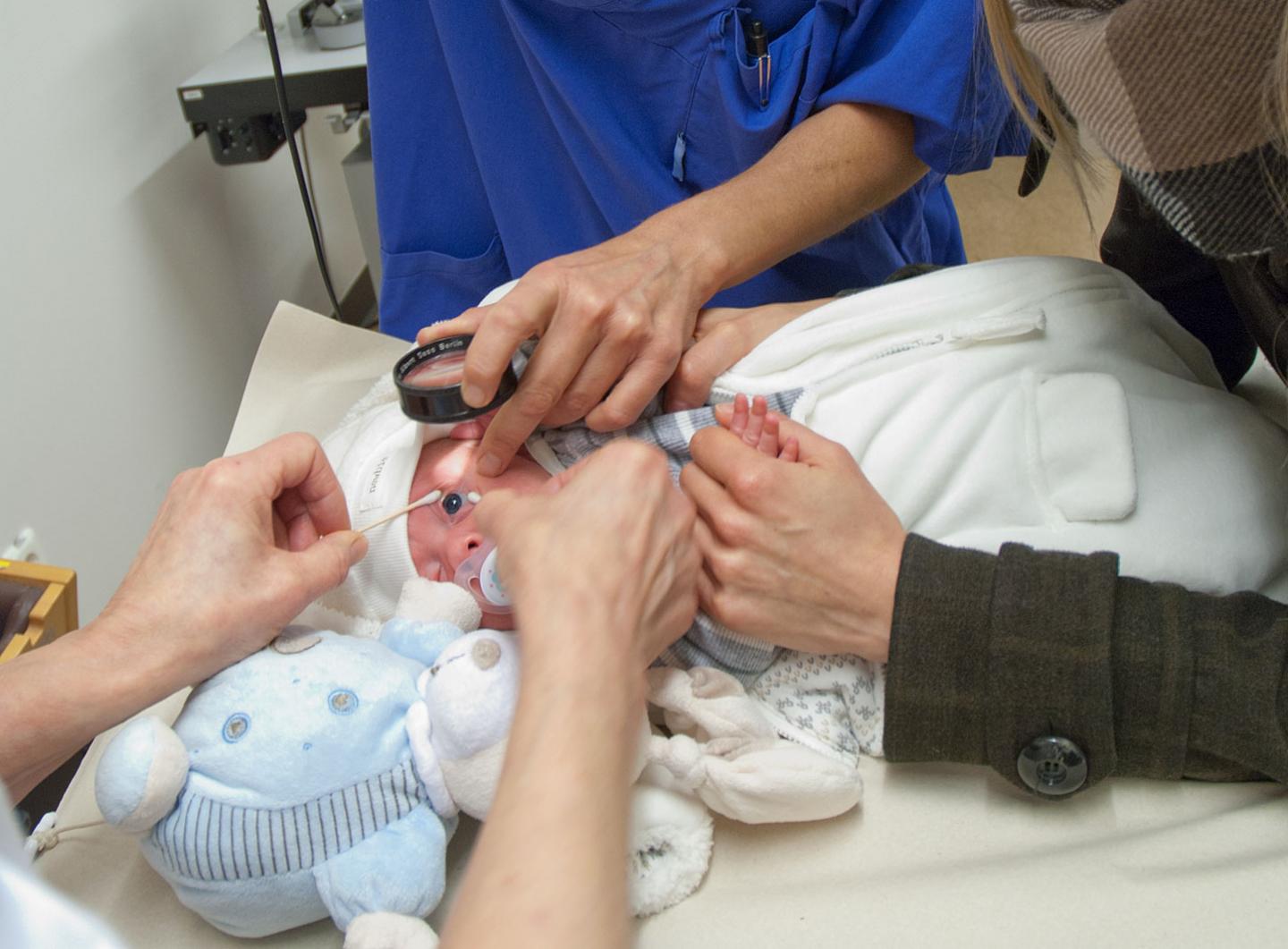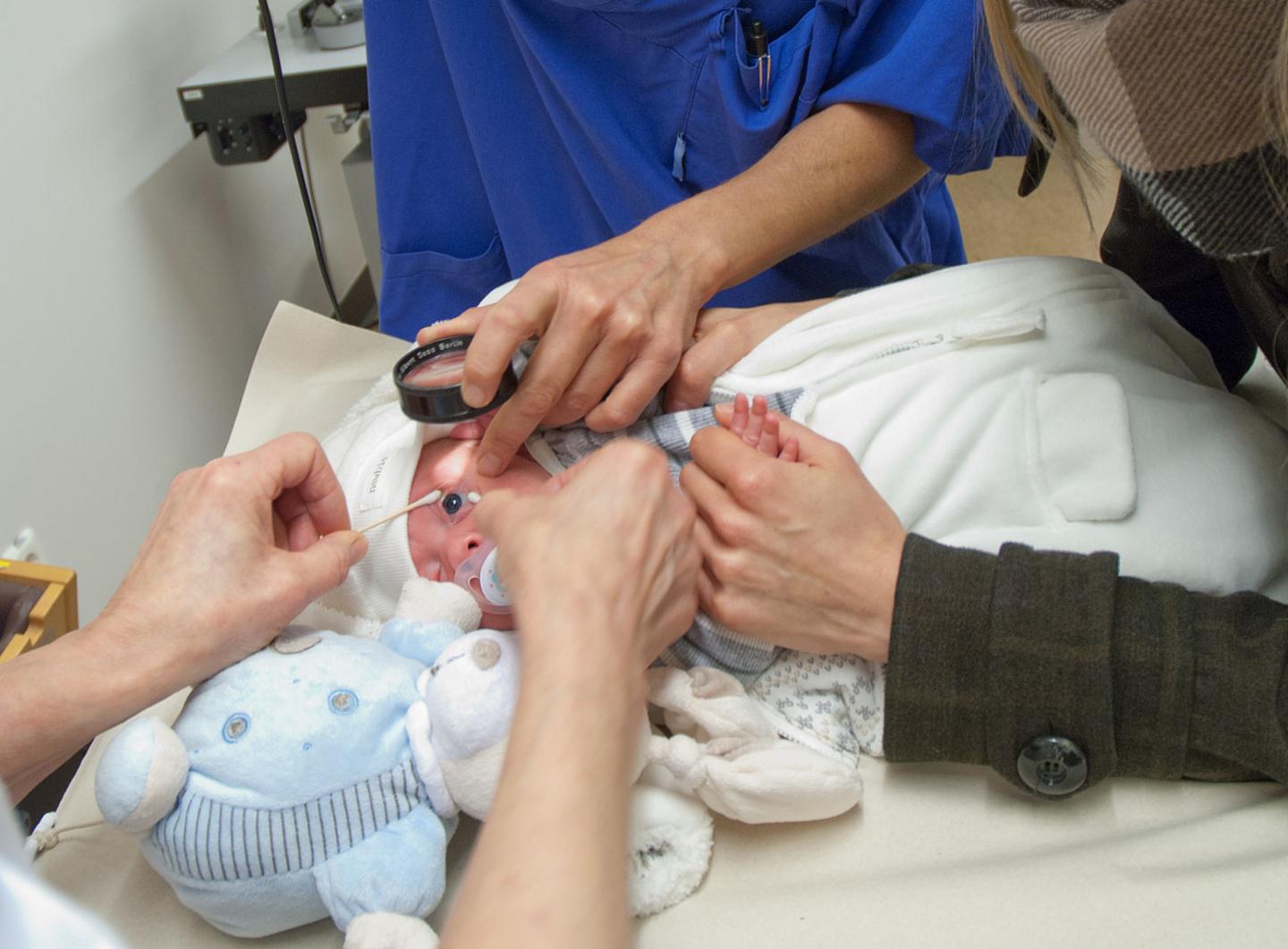
Credit: Photo: Ann-Sofie Petersson
Premature babies with low levels of platelets (thrombocytes) in their blood run a greatly increased risk of being afflicted with a severe variation of retinopathy of prematurity (ROP), an eye disease that can cause blindness, according to a study from Sweden and US published in the journal JCI Insight. In experiments on mice, injections of blood platelets reduce the pathological development of retinal vessels.
"I believe this paves the way for completely new therapeutic possibilities and also for new research domains for both pathological and normal vascular development," says Ann Hellstrom, professor of pediatric ophthalmology at Sahlgrenska Academy, University of Gothenburg, Sweden, and a chief physician at Sahlgrenska University Hospital.
Retinopathy of prematurity (ROP) mainly affects children born before 28 weeks of pregnancy whose retinal vessels have not finished growing at birth. The children run the risk of permanent vision impairment and in severe cases blindness due to retinal detachment.
The current study points to a correlation between low levels of platelets, whose main task in adults is to inhibit bleeding in blood vessels, and a fourfold increased risk of severe ROP in infants. Observational studies on a total of 202 premature babies with ROP have been conducted in Gothenburg and Stockholm.
The experimental parts of the study, conducted at Harvard Medical School in Boston, indicate that the pathological vascular development in the retina of young mice increased by 30 percent when platelet levels were lowered by means of antibodies. When platelets from adult mice were introduced instead, the pathological vascular development declined by 19 percent.
"Platelets in the bloodstream contain factors that are like nannies for vascular development. But babies who are born prematurely consume much of their platelets in connection with infections, and an imbalance of these factors arises in the bloodstream and out in the tissue that can lead to pathological vascular development, in this case in the retina," Ann Hellstrom explains.
Both Ann Hellstrom and her colleague in Boston, Lois Smith, maintain that the findings in the study point to a new direction and potential strategy for treating premature infants at risk of vision impairment caused by ROP.
"Purely hypothetically, it's conceivable that a transfusion of platelets could be administered to restore balance and calm everything down if there are signs of a growth of pathological blood vessels if the child is found to have low levels of platelets," Ann Hellstrom says.
###
Media Contact
Ann Hellstrom
[email protected]
46-768-979-196
@uniofgothenburg
http://www.gu.se/english
Original Source
https://sahlgrenska.gu.se/english/research/news-events/news-article/?languageId=100001&contentId=1587990&disableRedirect=true&returnUrl=http%3A%2F%2Fsahlgrenska.gu.se%2Fforskning%2Faktuellt%2Fnyhet%2F%2Frisk-for-blindhet-hos-for-tidigt-fodda-vid-lag- http://dx.doi.org/10.1172/jci.insight.99448





